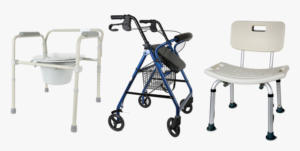History
The Washington County Thriving in Place (TiP) Initiative brought county, state and tribal partners in health, social services, and elder care together to implement a responsive work plan to improve outcomes for elders and others with chronic health issues who chose to remain at home. Partners met to craft and implement a plan between 2015 and 2021, funded by The Maine Health Access Foundation (MeHAF). Read the Washington County TiP Project Summary. You can also read theMeHAF’s follow-up study of this Thriving in Place cohort.
The Community Caring Collaborative (CCC) was the lead agency providing administrative oversight of the implementation process, convening meetings of TiP partners who participated in a ripple effects mapping exercise conducted by David Wihry from the University of Maine Center on Aging that focused on sustaining the initiative after the grant period. View the map here. All the major TiP partners committed to continuing the work which fell in alignment with their respective organizational missions and goals. This includes maintaining the Elder Services Navigator position. Downeast Community Partners houses this role with support from the CCC.
DME Exchange
Along with sustaining the plan objectives, CCC is developing new strategies that involve organizations serving older adults, including a Durable Medical Equipment (DME) site under the leadership of Dante Zanoni, Program Manager of The Connection Initiative. Housed in the Lubec Community Outreach Center at 44 South St, Lubec, this site accepts donations of expensive medical equipment that may not be covered by health insurance but might be required for older Mainers and those with chronic illness to either convalesce after a hospital stay or remain at home for as long as possible. For example, wheel chairs, walkers, hospital beds, bath or shower chairs, and bedside commodes play a huge role in a patient’s transition from the hospital after surgery and continued safety. People in need of such equipment can contact Dante at dzanoni@cccmaine.org or 207-263-4997 to arrange for temporary or permanent use without charge. Potential DME donors can also connect with Dante. Since the DME exchange opened in 2021, over 60 pieces of equipment have gone out to our community members in Washington County, as of January 2024. Download a flyer to share.
permanent use without charge. Potential DME donors can also connect with Dante. Since the DME exchange opened in 2021, over 60 pieces of equipment have gone out to our community members in Washington County, as of January 2024. Download a flyer to share.
Many requests for DME are now coming The Connection Initiative (TCI), a platform that connects seekers to resources, operated by the Community Caring Collaborative. Dante regularly receives requests for hospital beds, wheel chairs and commodes through this channel. People looking for durable medical equipment this way can make a request by calling TCI (207-255-7786) or visiting the website. Lead Agencies TCI has collaborated with for DME related issues include Healthy Acadia, Maine Seacoast Mission, Downeast Community Partners, and Aroostook Mental Health Center.
DCPHI
The Downeast Community Population Health Initiative (DCPHI) is a 2-year collaborative effort funded by the Maine Community Population Health Initiative to improve health outcomes for Tribal and non-tribal community members aged 65 and older in Washington County and Passamaquoddy communities. CCC through it’s TCI Program is the lead organization on this grant, partnering with Beth C. Wright Cancer Center, Community Health & Counseling Services, Sunrise County Economic Council, Downeast Community Partners, Passamaquoddy Health Center and Tribal Government elder advocates, and Eastern Area Agency on Aging. CCC will also partner with MCD Global Health’s CHW Core Competency and Health-Related online trainings to strengthen the local community health workforce through field placement opportunities, employment, professional development, and team-oriented approaches to care.
The first year of the initiative, beginning in February 2024, is the planning phase, during which significant effort will go into deepening understanding of health conditions and engagement with health services for Tribal and non-tribal community members. According to the Maine Community Health Needs Assessment (CHNA) Washington County has higher rates of three or more chronic conditions than Maine overall (19.4% vs. 15.6%). Hospitalization, Emergency Department use, and hospital readmission rates are all higher than state levels. Impacts of deaths related to cancer (190.8 vs. 168 per 100,000), cardiovascular disease (232.4 vs. 193.9), respiratory disease (53.3 vs. 48.6), and other conditions reverberate across families, communities, and the economy.
Year 2 of the the initiative will see the fruits of the planning phase implemented utilizing The Connection Initiative (TCI). TCI is a county-wide closed-loop referral system that utilizes an online platform to strengthen care coordination and monitor resource needs and availability. TCI is emerging as a powerful structural asset for connecting neighbors in Washington County to services across health-related needs. Beyond direct referrals, TCI also engages community health workers (CHWs), navigators, and advocates in partner organizations to help community members reach goals, resolve barriers, or navigate multiple systems. Building on this work, DCPHI will leverage the strengths of TCI for improved communication, coordination, and monitoring of efforts across agencies to connect older adults and Tribal elders with health-promoting resources and services. The goal is to address chronic disease incidence and associated costs of community-identified and data-informed health priority areas through TCI- and CHW-supported engagement in health prevention, education, and treatment services.

